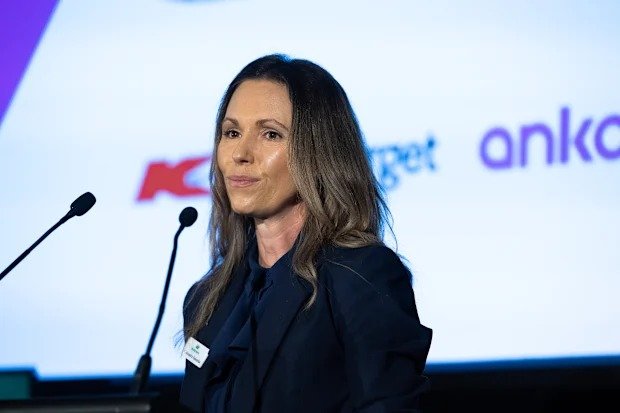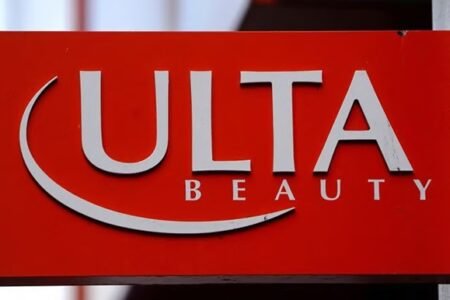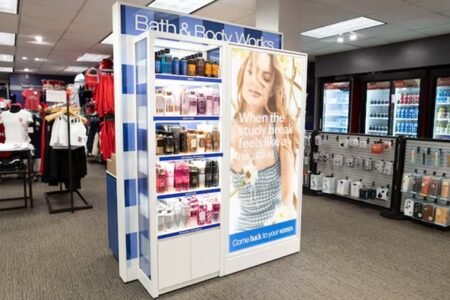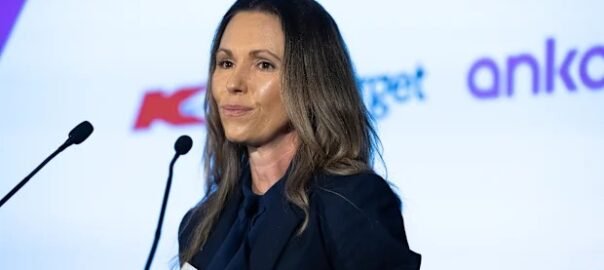
Kmart chief plots global expansion to deliver $20b sales target
Kmart Group’s new managing director Aleks Spaseska has outlined plans to double the discount department store’s sales to $20 billion within a decade by focusing on younger shoppers and expanding its beauty range.
At the centre of the Wesfarmers-owned retailer’s massive expansion strategy is its wildly popular Anko home brand, which Spaseska hopes to expand internationally, including with stand-alone stores in the Philippines. If successful, Kmart could roll out stores across South-East Asia.
Spaseska, 41, outlined her plans at a Wesfarmers strategy day after becoming the youngest divisional head at the conglomerate in April. Kmart Group runs its eponymous department stores, as well as the Target chain and a growing Anko business that started in-house and now has tie-ups with international retailers, including Walmart Canada and toy giant Mattel.
While Perth-headquartered Wesfarmers operates national stationery brand Officeworks and a major hardware chain in Bunnings, alongside a large lithium and chemicals division, its discount department store business has been powering the company’s earnings growth in recent years.
It had targeted $10 billion in sales, and surpassed that milestone last year. Spaseska told investors on Thursday that she aimed to double that figure and reach $2 billion in earnings over the next five to 10 years.
To achieve that, the company is planning a new store format targeting shoppers aged under 30 with a more curated fashion and beauty display. It has also introduced click-and-collect options, a technology that appeals to younger shoppers. Spaseska pointed to the growing number of users active on the Kmart app every month – doubling over the year to some 1.3 million – as evidence that the strategy was beginning to work.
Kmart is also opening a new $200 million distribution centre in Sydney’s west. The 100,000 square metre site will begin operating late in 2027 and will be used for stores and online orders for both Target and Kmart to replenish products faster, improve availability and reduce costs.
Anko was established as Kmart’s own brand in 2019 and now sells more than 1 billion items – from linen to fashion and toys – in Australia each year. Last year, Wesfarmers revealed the brand accounted for 85 per cent of sales at the department store, more than $4 billion in six months. Jarden analysts have previously valued Anko alone at more than $8 billion.
Spaseska is trialling stand-alone stores in the Philippines, where it is hoping to target a growing middle-class and already has two outlets. Three more will open by the end of the year, and if successful, the company may roll out stores across the region, Spaseska said in an interview.
“We’re taking a very methodical approach,” she said. “We’ll be able to test how that performs in different shopping centres and across different demographics across the country, and that’s going to provide critical data because it will allow us to be able to estimate how big it could be.”
Having already trialled selling products in the United States, Anko homewares and furniture is now on sale through Walmart Canada. The brand has also signed a distribution deal with European supermarket Action. “They are very large, and they are rapidly growing, and we see them as a really great partner into a number of European markets,” she said.
Tom Kierath, a Barrenjoey analyst, said that while Spaseska had not provided a clear timeline for the $20 billion sales target, the plan “illustrates the confidence management has in the Kmart growth trajectory”.
Kmart had “a number of growth drivers”, he said, which included the new format stores, the rollout of Anko internationally, and productivity improvements from new technology. Management “flagged it expects earnings to outpace sales growth”, indicating higher margins, Kierath said.
Wesfarmers’ chief executive, Rob Scott, said the Anko brand was crucial to the conglomerate’s growth, as were several other businesses. Among those were the company’s Priceline pharmacies business, which Wesfarmers has been investing in since acquiring its owner, Australian Pharmaceutical Industries, off the ASX in 2021 for more than $760 million.
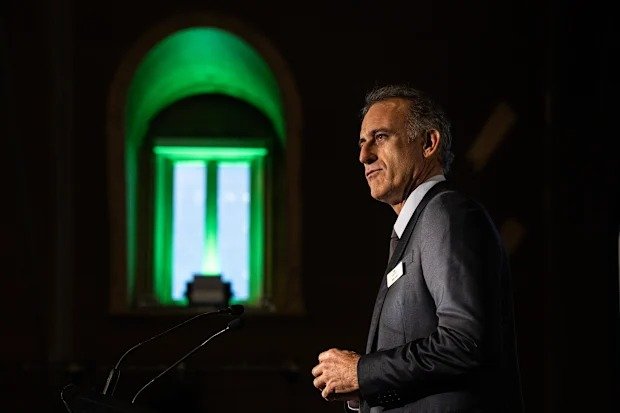
The company is also developing its Atomica brand in a bid to capitalise on the booming demand for beauty and skincare products. The Australian Financial Review reported in March that Wesfarmers had begun experimenting with a new-look rebrand of some Priceline stores to compete with top-end Mecca and the lower-end MCoBeauty in the booming beauty category.
“It’s still early days, we only have a handful of stores that we’ve opened, but the attractive thing has been customers when they come into the store, they spend more, and international brands see it as a really exciting format,” Scott said about the success of the trial Atomica stores.
Scott, in an interview after the strategy day, said the Reserve Bank of Australia’s decision to cut interest rates this month was welcome news, but the central bank would need to cut twice more to spur spending. Small businesses, in particular, are important for Wesfarmers’ biggest division, Bunnings, and Officeworks.
Barrenjoey’s Kierath said that Wesfarmers continued “to execute well and delivered a measured but relatively strong earnings growth outlook across the board”, although he was more wary of its chemicals division.
Wesfarmers shares fell 97¢, or 1.2 per cent, to close at $83.09 on Thursday.
Author Credits- Carrle La Frenz
FINANCIAL REVIEW

